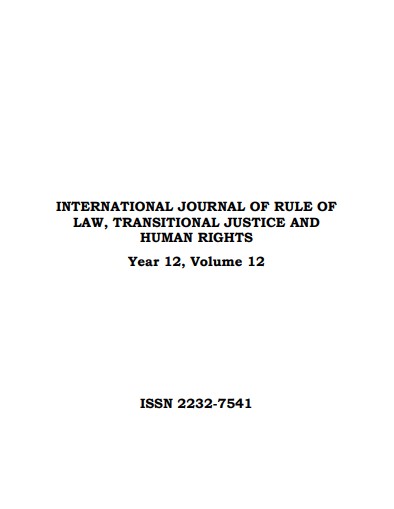International Criminal Law and Transitional Justice in Libya: two UNSC-mandated mechanisms
International Criminal Law and Transitional Justice in Libya: two UNSC-mandated mechanisms
Author(s): Lorenzo Dal MonteSubject(s): Criminal Law, International Law, Law and Transitional Justice, Present Times (2010 - today), Peace and Conflict Studies
Published by: Udruženje “Pravnik”
Keywords: United Nations Security Council (UNSC); “Arab springs”; Transitional justice in Libya; North Atlantic Treaty Organization (NATO); United Nations Support Mission in Libya;
Summary/Abstract: On 26 February 2011, the United Nations Security Council (UNSC) adopted the Resolution 1970/2011. Operating under Chapter VII of the UN Charter, the UNSC unanimously decided to refer the situation in Libya to the International Criminal Court (ICC) according to article 13(b) of the Statute of Rome. Amongst all countries where “Arab springs” took place, this is the only country that fell under the jurisdiction of the ICC. Since then, three cases were opened and five warrants of arrest were issued. Libya is not party to the Statute of Rome, and in fact, with the exception of Tunisia1, no other countries where “Arab springs” took place have ratified the accession to the Statute of Rome. Libya therefore represents the second time2 in the whole history of the ICC, where the latest is investigating and judging over a country that is not a member of the ICC. However, the ICC is still investigating in Libya and information about collected probes are still concealed. Seven months after the referral to the ICC, on 16 September 2011, the UNSC decided to activate the political mechanism: United Nations Support Mission in Libya, UNSMIL. In the meantime, a series of transitional authorities have taken over the leadership of Libya, authorizing the production of interesting laws related to transitional justice and the establishment of truth and inquiry commissions. The situation in Libya shows as UNSC activated two mechanisms, to some extend working in parallel, that must find a way to coexist: in one hand, the ICC criminal proceeding, in the other hand, the transitional justice process supported by the UNSMIL.
Journal: International Journal on Rule of Law, Transitional Justice and Human Rights
- Issue Year: 12/2021
- Issue No: 12
- Page Range: 13-28
- Page Count: 16
- Language: English

